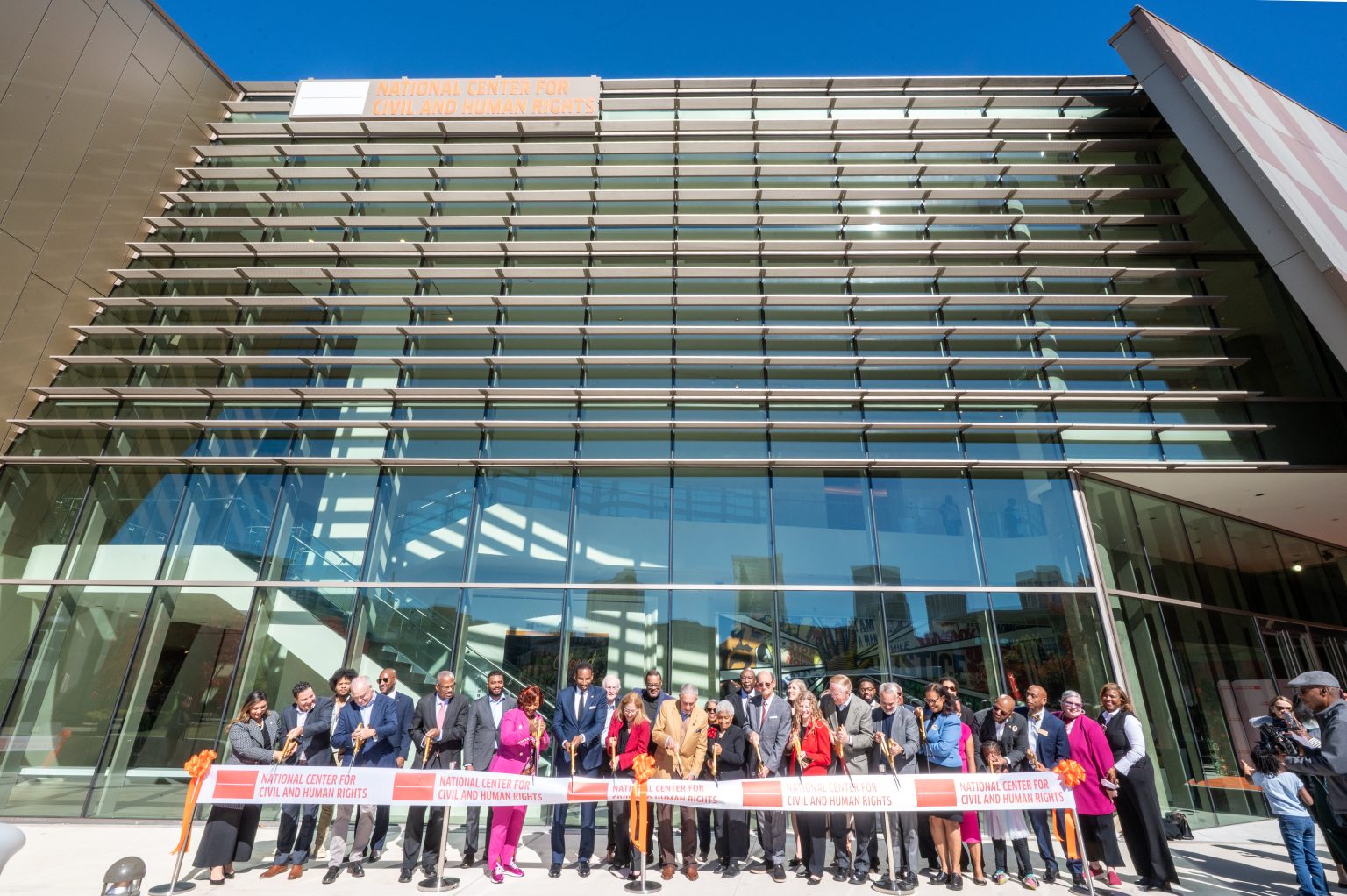Atlanta celebrated a major cultural milestone this week as the National Center for Civil and Human Rights reopened its doors following a $57.9 million expansion that fulfills the founders’ vision of a world-class destination for learning, dialogue, and reflection.
The Center’s reopening marks a new era for one of Atlanta’s most iconic institutions—strengthening its role as a national leader in civil and human rights education and deepening its connection to the city’s legacy of activism and progress.
A Landmark Expansion
The 24,000-square-foot expansion introduces six new galleries, an updated Civil Rights Movement gallery, three classrooms, and flexible meeting spaces designed to foster connection and critical conversation. Two new wings—each named for a pillar of Atlanta’s civic leadership—stand at the heart of the project:
- The Shirley Clarke Franklin Pavilion, offering classrooms, event space, and a rooftop terrace with sweeping skyline views.
- The Arthur M. Blank Inspiration Hall, featuring three new galleries, a café, and a retail store.
The City of Atlanta, in partnership with the Atlanta-Fulton County Recreation Authority, contributed $10 million toward the expansion. In recognition of that investment, the Center named one of its premier spaces the Atlanta Boardroom.
Honoring Atlanta’s Legacy of Leadership
Tuesday’s ribbon-cutting ceremony brought together a powerful lineup of Atlanta leaders including former Mayor Shirley Franklin, Arthur M. Blank, and Mayor Andre Dickens, along with community partners, donors, and supporters. Students from CJ Hicks Elementary School opened the event with a musical performance before guests toured the expanded Center and previewed new exhibits.
Speakers included Egbert Perry, Shirley Franklin, Arthur M. Blank, and National Center for Civil and Human Rights President and CEO Jill Savitt, each reflecting on the Center’s mission and the collective effort that brought the expansion to life.
A Timely Reopening
The Center’s reopening comes at a pivotal moment for the nation, reminding visitors of Atlanta’s enduring role in advancing equality and justice. The project fulfills a long-held vision to create more space for education, community gatherings, and interactive exhibits that link the past to today’s social movements.
The Road Ahead
The National Center for Civil and Human Rights officially reopens to the public on November 8, 2025, with a weekend of special programming, community events, and surprise guests. As it embarks on this new chapter, the Center remains dedicated to connecting history to today’s human rights challenges and inspiring future generations to take action.
